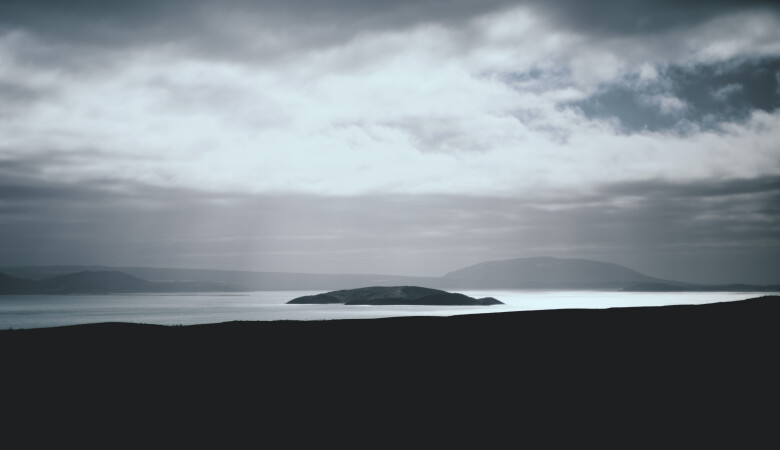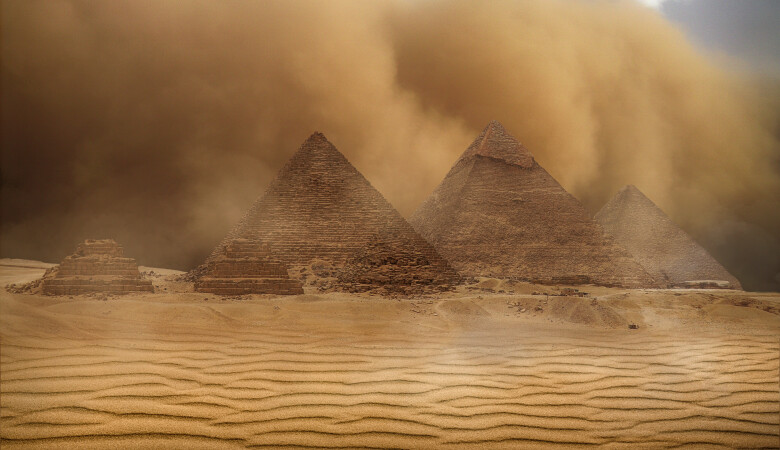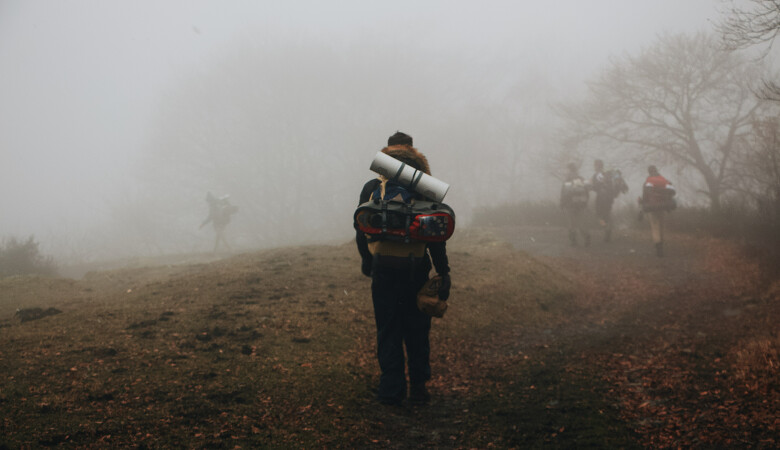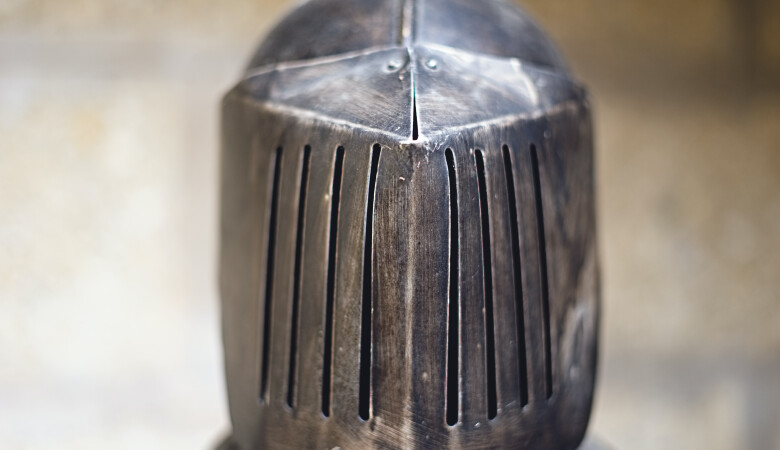Run for Your Lives! (Isaiah Sermon 17 of 80)
September 07, 2008 | Andy Davis
Isaiah 15:1-16:14
Wrath of God, Missions, Judgment
Pastor Andy Davis preaches a verse-by-verse expository sermon on Isaiah 15:1-16:14. The main subject of the sermon is how the nations will flee in the day of God's wrath.
- SERMON TRANSCRIPT -
I. Introduction
As we come to Isaiah 15 and 16, I acknowledge here before you the challenge of expositional preaching. It is quite possible that there’s no congregation on the face of the earth that has had Isaiah 16:4 projected up on the walls as we did this morning, talking about fugitives from Moab and finding refuge in Christ. That’s the challenge of exposition and the joy as well. “All scripture is God-breathed and is useful for teaching, rebuking, correcting, and training in righteousness.” (2 Tim 3:16) Amen.
Jesus said, “Man does not live on bread alone, but on every word that comes from the mouth of God.” (Mt 4:4) Now, my brother and good friend, Andy Winn, had John 3:16 last Sunday. I get Isaiah 15 and 16. He did a wonderful job and I was greatly encouraged. But frankly, the more I studied these two chapters that we’re looking at today, the more relevancy I saw in my own personal life. I don’t know that this is something where you’re necessarily going to take a verse from it and memorize it, or something like that. Yet, it is the word of the Lord to us today. And I pray that God will enable me to preach it with power and with conviction so that our lives might be transformed.
I’ll never forget the summer of 1987, when I had the privilege of ministering to refugees who had fled from the invading Russians in Afghanistan. They were across the border in Pakistan, and we went to the city of Peshawar and we ministered to them. They were the most miserable and destitute people I’d ever seen in my life. And it’s still the case. I’ve seen some poverty in Asia, in India, in Haiti, but I’ve never seen the kind of misery and pain that I saw etched on the faces of these people that had run for their lives from Russian helicopter gunships. Many of them had seen relatives and friends killed before their very eyes. Their prospects were limited. They were not incredibly welcome in Pakistan. They were safe, at least for the time being, but their prospects economically were dim.
Very few people were ministering to them. They had a hard time eating and caring for themselves. And again, the future looked dim. What a joy and privilege it is to go into a situation like that and minister the gospel of Jesus Christ! Amen! To be able to bring hope where, other than the ministry of the Gospel, there would be no hope. But the 20th century really was a century of refugees. Look at World War I. Look at World War II. Look at grainy old black and white photos from World War I and footage of German dive bombers, strafing columns of refugees that are fleeing from Belgium, or fleeing from Poland, or fleeing from Russia or Ukraine. You can see a picture in your mind of what it is to be a refugee. It’s a terrifying situation to be in, to lose everything that you have except what you can carry with you.
I remember a picture of an elderly French woman. She’s got a mink stole on and she’s got an evening gown and a valuable painting. She’s got it in a baby buggy and she’s pushing it down a muddy road. It’s all she has left of a former way of life. Everything that she has, she’s carrying with her. You get the sense that it won’t be much longer and she won’t even be pushing that baby buggy. She’ll be stripped of everything. So it is to be a refugee. The more I meditated on Isaiah 15 and 16, the more I saw the relevance to our lives. I don’t know that any of us will ever be refugees. I do know that the United Nations High Commission on Refugees said there were sixty-five million displaced persons in 2007.
So there’s a lot of refugees around the world. There’s an opportunity for us as a church of Jesus Christ to minister. We had an opportunity to minister to some refugees who came to us from Vietnam. What a great privilege that was! We may well have a practical ministry to refugees. It could be that, if we are in fact the final generation, and some of the events that are recorded in the Book of Revelation take place, then we will actually know what it means to flee for our lives and to dwell in caves, and to look for a place of refuge from an encroaching terror that’s coming to hunt us down. We may know that. If the Lord tarries, we may never know that.
But there are people, even brothers and sisters in Christ, in the Sudan and other places in the world, that are actually going through this right now. So at the physical level, I think there’s a relevance to this text. But I also see a spiritual connection. I don’t think it’s hard to find because what happens in this text is a judgment on Moab. Some unnamed invader comes into their country and the people of Moab have to run for their lives. Their military strength is gone. They have nothing left. Their religious strength is gone and they run for their lives. They actually turn, at that point, to their former enemies in Judah, the Jews. They want to see if it’s possible that they might take them in. As a matter of fact, Isaiah the prophet says that it’s the only refuge they’re going to have.
I’m going to talk about who the invader could be. We don’t really know who it is. But if in fact the invader was Assyria, and if they came in during a certain time, it could be that, literally, physically, the only refuge there could be would be in Zion, in Jerusalem, with godly King Hezekiah. This, in the end, becomes a picture of the gospel of Jesus Christ. Jesus, the descendant of David, the King, the Davidic King, mentioned in the middle of Isaiah 16, is in fact the only refuge there is from the coming judgment. So there is a beautiful spiritual picture of the gospel as well.
The Bible does this over and over. Oh, how the Lord wants us to flee to Christ! How many different ways does it give us incentive so that we would run for our lives, run to the only refuge there is, the refuge of Jesus Christ? There are pictures again and again in the Old Testament of a place of refuge. If you go there, you are going to be safe from the coming judgment and the coming wrath. But, if you go outside of it, you’re going to be killed. You’re going to perish.
Noah’s ark is a picture of that. If you’re on the ark, you’re safe. If you’re outside the ark, you are lost. Also, during the time of Passover when the Jews painted the blood of the sacrificial lamb over the door posts, the angel of death passed over. If he saw the blood on the house, everyone inside the house was safe. But if you were outside the house, your blood was on your own head. That meant you were going to die. So there’s a place of refuge, a place of security and safety, and outside there is none. Or again, we have Rahab’s house nestled in the walls of Jericho. The promise of a scarlet cord hanging down was that she and all of her relatives would be safe if they stayed in the house. But if they went outside the house, their blood would be on their own heads. They would die. It is also a picture of a place of refuge, which you have to be inside. That’s where the refuge is. Outside there is none. In the Law of Moses, there is a provision for cities of refuge where, if you accidentally kill somebody, you can run for your life. If you get there before the avenger of blood comes, you’ll be safe. They’ll protect you and keep you safe until the death of the high priest. It was a picture, again, of a place of refuge.
Don’t you see how all of these are pictures of Jesus Christ? Don’t you see Christ in all of this? Don’t you see the need to run for your life? Don’t you see that there is a judgment coming, worse than the flood of Noah? It’s an eternal judgment, an eternal fire. What we stand to lose is not just our mortal lives, but our souls. We are encouraged again and again and again to run for our lives to the place of refuge, and that is Jesus Christ. So there you have it. There’s the sermon in a nutshell. What we have is a current event that’s not so current.
II. Moabite Refugees Fleeing in Terror
Prophecies Against the Nations
We have, in this section of Isaiah, the oracles against the nations. Isaiah the prophet is giving an oracle, or a saying, a prophecy concerning Moab. From Isaiah 13 through 23, one nation after another is addressed through the prophetic voice. Isaiah the prophet is speaking here to the little country of Moab. We’ve had oracles against great nations like Assyria and Babylon. Last time, we looked at an oracle against the Philistines, a smaller nation. Here, the Moabites were even smaller. The Sovereign God who rules over all the earth is orchestrating the events of all the earth. He speaks an oracle through his prophet to the people of Moab, the Moabites.
Who are the Moabites?
Now, who were the Moabites? They were descended from Lot, Abraham’s nephew. When, in another picture of refuge, Lot fled from Sodom and Gomorrah to the little town of Zoar, he was able to survive the fire and brimstone. This is a picture, again, of refuge, fleeing for your life. But then, thinking that it was the end of the world, they took up refuge in a cave. Lot was there with his two daughters. And the daughters, thinking that they wouldn’t know any more people on the face of the earth, perhaps with the memory of the flood still very fresh in their minds, induced their father through wine to lay with them. Each of them had a son by their own father and from this came two peoples, the Moabites and the Ammonites.
The Moabites took up residence on a tiny piece of land east of the Dead Sea, stretching from the Arnon River, which dumps into the Dead Sea, to the Zered River, on the border with Edom. It’s a small piece of land, thirty miles by thirty miles. It’s really small. The Moabites were not a mighty and significant people. They were usually enemies of Israel, usually in opposition to the people of God. They would fight against them. For example, during the Exodus, they would not allow the Israelites to pass through their territory, they had to go around. They hired Balaam to curse Israel, and you remember what happened with that. The Moabite women seduced the Israelite men to worship Baal of Peor through sexual immorality. It was the Moabite women that did that. As a result of all of these things, the Law of Moses forbad any of them to enter the assembly of the Lord down to the tenth generation. They were forbidden to enter.
During the time of the Judges, God gave Israel over to a Moabite king, Eglon, the fat man. Eglon was murdered by one of the judges, Ehud, a left-handed man. These were the Moabites. They were the enemies of the people of God. It was Moabite wives that seduced King Solomon to worship foreign gods, to worship Chemosh, their detestable god. They occasionally organized armies to fight against the Jews, and they usually lost. They were the enemies of God’s people. By the end of Kings and Chronicles, Moabite raiders were still plundering Israel.
Yet, for all of that, it was a godly Moabite woman, Ruth, who said to Naomi, “Where you go I will go, and where you stay I will stay. Your people will be my people and your God will be my God… May the Lord deal with me, be it ever so severely, if anything but death separates you and me.” (Ru 1:16-17) From Ruth came David, and through David, ultimately, came our savior Jesus Christ. Therefore, we see the grace of God in dealing with pagan people. We also see God’s saving intentions to the Gentiles and to every tribe and language and people and nation, everyone on the face of the earth.
Why are They Fleeing?
These are the people, the Moabites, who are running for their lives in these two chapters. It’s the Moabites who are running now. Why are they fleeing? Look at Isaiah 15:1, “Ar in Moab is ruined, destroyed in a night! Kir in Moab is ruined, destroyed in a night!” By the way, if you see Keith Pendergraff, thank him for that reading. There’s something like twenty proper nouns in that. He did a phenomenal job. I don’t know that I’m going to do as well. I was adjusting my pronunciation as I listened to him read the scripture. So thank you, Keith. We thought about that at our staff meeting, “Now, who’s going to do this reading? Please urge them to practice ahead of time.”
But what is going on in Isaiah 15:1? Well, these are two cities in Moab, Ar and Kir, and both of them are destroyed in a night. They’re gone. These are their strongholds, their high places, their walled fortresses. They are nothing to the unnamed invader. In a single night, they are gone, both of them have fallen. Furthermore, their religion has proven to be empty. They turn to their high places. Verse 2 says, “Dibon goes up to its temple, to its high places to weep.” If you look all the way over to Chapter 16:12, it says, “When Moab appears at her high place, she only wears herself out; when she goes to her shrine to pray, it is to no avail.” Chemosh cannot help them. You know why? Because Chemosh does not exist.
He’s an idol of their own imagination and Chemosh cannot save them. So they are running for their lives. They are fugitives. Look at Isaiah 15:5, “Her fugitives flee as far as Zoar, as far as Eglath Shelishiyah. They go up the way to Luhith, weeping as they go; on the road to Horonaim they lament their destruction.” You see a picture of a train of refugees, crying, running, leaving possessions behind, stuff strewn along the roads. That’s what’s going on. The Moabites are running for their lives. Like all refugees, they try to carry whatever they can of their possessions. Verse 7 says, “So the wealth they have acquired and stored up they carry away over the Ravine of the Poplars.”
They’re going to carry their gold and silver with them. Well, how long is that going to last? It’s heavy. There comes a point where they will leave it behind. The army that’s going to come after them will pick it up and plunder them. So that’s what is happening. These are refugees leaving behind their old way of life, and the slaughter is terrible. Look at Isaiah 15:9, “Dimon’s waters are full of blood, but I will bring still more upon Dimon – a lion upon the fugitives of Moab and upon those who remain in the land.” Whether it’s a literal lion or it’s just more military conquest coming on this straggling line of refugees, it doesn’t matter. The fact of the matter is, it’s just a miserable, horrible time for these Moabites. The rivers are filled with blood. You see the image of their women in 16:2, “like fluttering birds, pushed from the nest, so are the women of Moab at the fords of Arnon.” As they’re trying to cross this river, they are panicking and weak and defenseless, a picture of the refugee.
Turning to Judah for Help
At this point, they turn to Judah for help. This is the only place they can turn. Frankly, this is what Isaiah wants them to do. If you look at Isaiah 16:1, it says, “send lambs as tribute to the ruler of the land, from Sela, across the desert.” Where? “to the daughter of Zion.” Reach out to the Jews. Why? Because salvation is from the Jews, your ancient enemies. Reach out to the daughter of Zion. That’s the advice that Isaiah’s giving. It’s really that God is giving it. Reach out to the Jews in your moment of distress.
Historical Details
Now, I have no idea, historically, what this is referring to. Nobody really knows. I have a sense of what’s going on, but nobody really knows. Of course, the big bully of the time was Assyria. It could be that in 715 BC, the Assyrians were coming down and dealing with some Arabian raiders that were making commerce difficult. As they did, they passed through little Moab. And what do the Assyrians do when they pass through somebody’s land? They do this kind of thing, this kind of conquest, this kind of bloodshed, this kind of plundering and pillaging. It could be that’s exactly what was going. The end for Moab is quite near.
The End is Near
Look at the end of our reading for today. Isaiah 16:13-14 says, “This is the word the Lord has already spoken concerning Moab. But now the Lord says: ‘Within three years, as a servant bound by contract would count them, Moab’s splendor and all her many people will be despised, and her survivors will be very few and feeble.” It’s a time table, three years as for a servant bound by a contract, meaning counting the hours. It’s going to be very accurate. Within that time, three years, Moab will be finished. That’s what’s going on. Look at Isaiah’s reaction, weeping for the refugees.
III. Weeping for the Refugees
God Does Not Willingly Afflict People
I find it fascinating, the emotional response of Isaiah to these, who are supposedly his enemies. I tell you that God does not willingly afflict anyone. He doesn’t willingly bring suffering on anybody. So says Lamentations 3:32-33, “Though he brings grief, he will show compassion, so great is his unfailing love. For he does not willingly bring affliction or grief to the children of men.”
The consistent teaching of scripture is that it is, in fact, God that brings these disasters. There’s not a subset of disaster that didn’t come from God and had nothing to do with God. He does everything. He’s King of the Universe, but He doesn’t delight in bringing suffering. That’s not what He’s doing. It’s called in Isaiah 28:21, “His strange work” and “His alien task.”
It’s not his home base. He does it for a reason, for a purpose. I believe He afflicts the nations to get them up out of their self-satisfied, self-worshipping rut, and to cause them to seek a Savior, who they would never seek if God didn’t afflict them. As King Hezekiah says as he is recovering from his illness, “Surely it was good for me to have been afflicted.” It’s a good thing, then, to be afflicted if, in the end, it means salvation for your soul. And I think that’s what’s going on here. God brings these kinds of afflictions because there is no way the Moabites will seek a Savior from the descendants of David, unless they are desperate and running for their lives.
Isaiah Weeps for the Nations
God brings this kind of affliction into lives, but you see the emotion, you see the compassion of God through His spokesman Isaiah. You see Him weeping for them, and it’s really quite surprising. Look at Isaiah 15:5. He says “My heart cries out over Moab; her fugitives flee as far as Zoar, as far as Eglath Shelishiyah. They go up the way to Luhith, weeping as they go; on the road to Horonaim they lament their destruction.” He’s weeping for them. He has compassion for them. In chapter 16:9-11, it says, “So I weep, as Jazer weeps… the shouts of joy… are stilled. Joy and gladness are taken away from the orchards; no one sings or shouts in the vineyards; no one treads out the wine at the presses, for I have put an end to the shouting. My heart laments for Moab like a harp, my inmost being for Kir Hareseth.”
This is Isaiah. Isaiah is speaking. He is a man. He is reacting to his own prophecies. He’s reacting emotionally to what he is writing. But in so doing, he is God’s mouthpiece, and it is really God’s own reaction to what the Moabites are going through. That’s quite remarkable. You have to look carefully, but look at verse 10, and then on into verse 11 of Chapter 16. It says, “Joy and gladness are taken away from the orchards; no one sings or shouts in the vineyards; no one treads out wine at the presses.” Why? “For I have put an end to the shouting.” Do you see that? The word “I?” Isaiah didn’t do that. It’s not Isaiah’s work that put an end to anything. He’s an announcer. He’s a messenger. This is God speaking. Therefore, the very next verse is God speaking as well. “My heart laments for Moab.”
This is the nature of our God. He brings the affliction, but He weeps at the effects. Surely, God’s ways are not our ways, and His thoughts are not our thoughts. They are so infinitely high above us, what God is doing in the world. But I believe He does it out of compassion. I believe He does it so that people will turn from their sins and cry out to a Jewish Savior, cry out to Christ and be saved. That’s why He does it. And unless some harsh treatment comes in most of our lives, if not all, we will never do it. We will never do it.
Christ Wept for His Enemies
Christ wept for His enemies, didn’t He? Didn’t Christ stand over Jerusalem and weep for the coming judgment that would come on that city? Didn’t He say, concerning the men that were murdering Him, “Father forgive them, for they do not know what they are doing.” (Lk 23:34) Do you see His heart there?
The Apostle Paul Wept for His Enemies
Do you see the Apostle Paul, in Romans 9, testifying that he has a great sorrow and unceasing anguish over the Jews who are making his life utterly miserable and who would love to kill him as well? He testifies solemnly that he would trade his salvation for theirs, if he could. Amazing compassion!
Do We?
What about us? What about me? Every time I come to the issue of my level of compassion for the lost, I’m brought up short and convicted. I realize that I have to cry out against the stoniness of my own heart and I realize that I just don’t care enough about fugitives, refugees. I don’t care enough about the lost, the idolaters around me. I don’t care enough. And I have to fan a little ember into a flame, by a biblical meditation on what hell is actually going to be like. I have to do it.
The scholarly pastor Andrew Bonar, in Scotland, lay on his bed Saturday nights. Down in the street, below his window, he could hear revelers tramping back and forth, going to the bars and the shows, an empty searching for something. He used to get out of his bed and weep over their souls and cry out, “Oh, they perish, they perish!” He would weep for them. Oswald J Smith, who brought the Gospel to over 50 countries, this is what he said, “Can we travail for a drowning child, but not for a perishing soul? It is not hard to weep when we realize that our little one is sinking below the surface for the last time. Anguish is spontaneous then. Nor is it hard to agonize when we see the little casket containing all that we love on earth borne out of the home. Ah, no; tears are natural at such a time! But oh, to realize and to know that souls, precious, never-dying souls are perishing all around us, going out into the blackness of darkness and despair, eternally lost, and yet to feel no anguish, shed no tears, know no travail! How cold are our hearts! How little do we know of the compassion of Jesus!”
I take solace from the fact that you can even see that Oswald J Smith, who brought the gospel to over 50 countries, saw that weakness in his own heart. It’s not natural for us, but we ought to weep over the kind of judgments that come on the lost. We ought to travail for their souls. We see the sorrow of Isaiah and, really, the sorrow of God over the affliction necessary to save them.
IV. The Great Advantage of Refugees
Advantage? How Can It Be?
We also see the great advantage for these refugees. Now, you might say what advantage can there be in being a refugee? Well, on an earthly basis, at a purely secular level, I can’t possibly see any advantage. As I said, these were the most miserable people I’d ever seen on the face of the earth. I don’t mean that in terms of their emotional state. I just mean in terms of their circumstances.
As I look at the hierarchy of suffering, the only think that I think is worse than running for your life before an invading army is being captured and held by a malicious tyrant who loves to torture you, with no escape or death. I think that’s probably the worst earthly circumstance you could be in. Of course, none of this compares to hell, because there is always some escape from any misery here on earth. But there is no escape from hell. Still, I think being a refugee is a horrible situation. Yet there is an advantage if, in the end, you come to your senses and come to faith in Christ, if you realize you’re really running for your life. And by that, I mean your eternal life. If you realize that your ordinary way of life was only going to lead you to hell, and something caused you to get out of that rut that was drawing you right down into hell, to get up out of that and say, “Where am I going?” If you then come to your senses and say, “I need a savior,” then it’s worthwhile.
Foundations Removed
There’s some advantage, then, in being a refugee. Foundations are removed. All the things you counted on and relied on are taken away. You have to think about everything anew and afresh. Everything’s been tossed up for grabs.
Pride Removed
Pride has been removed. Oh, that’s important. Look at Isaiah 16:6. It’s mentioned right there, “We have heard of Moab’s pride – her overweening pride and conceit, her pride and her insolence – but her boasts are empty.” Oh, they’re empty now! Now whoever it is has come in, the Assyrians, let’s say. Oh, there’s nothing left to be proud of now! Now they’re beggars looking for some place of refuge. Actually, that’s good, because Jesus said, “Blessed are the poor in spirit for theirs is the kingdom of heaven.” (Mt 5:3) It’s good to get to the point where you realize you have nothing in your hands to give to the king. You’re just begging for a place of refuge. That’s a good thing.
Pride has been destroyed. It’s amazing how proud we are, isn’t it? But what do we have to be proud of, really? We’re just created beings. Everything we have we receive from God. What do we have to boast about? Yet it’s in there, that worm of pride. It’s so ugly when you see it in someone else, isn’t it? It’s so ugly when you see it in another person, but it’s ugly if you can see it in yourself too. I was reading a quote by the French philosopher Jean-Jacques Rousseau. I can scarcely read this without feeling a curdling effect in my stomach. He said openly what most people would never parade. Pride is just oozing from this paragraph. Listen to what he said:
“What could your miseries have in common with mine? My situation is unique, unheard of since the beginning of time. The person who can love me as I can love is still yet to be born. No one has ever had more talent for loving. I was born to be the best friend that ever existed. Show me a better man than me, a heart more loving, more tender, more sensitive. Posterity will honor me because it is my due. I rejoice in myself. My consolation lies in my self-esteem. If there were a single enlightened government in Europe, it would have erected statues to me.”
Wow! Listen, bro. Let’s sit down and have a conversation. Let’s get the scripture and find out what the truth really is. What’s so sad is that we’re like this, though we don’t admit it. We’re not going to bring it this far, but we think, “Has anybody ever suffered like me? Nobody loves like I love. If I really got what I deserved, they’d be erecting a statue.” I don’t know if we carry it that far, but the pride, it’s really laughable. It’s actually good to laugh at yourself. But, you know, to actually get cured from it, sometimes it takes this level of affliction. To run for your life strips you of pride. What do you have left? Where then is your resume? Where then are your possessions? Where then is your glorious future? You’re running for your life, and that’s what it’s done. So there’s a great advantage to being a refugee.
V. The Only Safe Refuge: Christ
An Invitation for Refuge
It’s good if you know the refuge. Amen? If you know where to run to, now that’s a benefit. And I say to you, the only safe refuge is Jesus Christ. He’s mentioned in the text, though indirectly. With their pride stripped, the Moabite refugees have nowhere to turn but to Judah. As we already mentioned in Chapter 16:1, they’re urged to “send lambs as tribute to the… mount of the Daughter of Zion.” That’s Jerusalem. They begged for help from the Jews. Verses 2-4 of Chapter 16 say, “Like fluttering birds pushed from the nest, so are the women of Moab at the fords of the Arnon. ‘Give us counsel, render a decision. Make your shadow like night – at high noon. Hide the fugitives, do not betray the refugees. Let the Moabite fugitives stay with you; be their shelter from the destroyer.’ The oppressor will come to an and, and destruction will cease; the aggressor will vanish from the land.”
A Stunning Prophecy: A Ruler from the House of David
Here we have a stunning and beautiful prophecy: a ruler from the house of David. Look at verse 16:5, “In love a throne will be established; in faithfulness a man will sit on it – one from the house of David – one who in judging seeks justice and speeds the cause of righteousness.” Oh, how sweet is that promise of Jesus Christ! This isn’t any one of the Davidic kings. Yes, Hezekiah was a godly man, but he was no final refuge. He’s a picture of A refuge, but he’s not The final refuge. Oh no. The final refuge is Jesus Christ, the son of David, the son of Abraham. He’s the refuge. Therefore, Isaiah predicts the establishment of a Davidic throne that will reign in righteousness. This Davidic king will bring justice to the nations. It is Jesus Christ then at last, who is every refugee’s place of safety. The name of the Lord is a strong tower. The righteous run to it and find refuge.
Jesus is the name of the Lord. Everyone who calls on the name of the Lord will be saved. You run to Him and you find refuge. What refuge is there? The foot of the cross, where Jesus shed His blood for sin. The real danger is not the Assyrian army or any army. The real danger is the wrath of God. “’Do not fear those who kill the body and after that can do nothing to you. I’ll tell you the one to fear,’ said Jesus, ‘fear the one who has the power to destroy both soul and body in hell.’” We need a refuge from hell. We need a refuge from the judgment of an all-seeing God. We need a refuge from judgment and wrath. That’s what we need.
Jesus Christ is the place of refuge, amen? We can flee to Him and find safety. There is no other, there’s no other place. God didn’t ordain that Noah and five other people each build an ark. There was one ark, there was one place of refuge. And so it is with Christ. In the Old Covenant, the Moabites were excluded to the tenth generation. Oh, but praise God for the New covenant, Amen? In the New Covenant, anyone who repents and believes is welcome.
“All that the Father gives me will come to me,” said Jesus, “and whoever comes to me I will never drive away.” (Jn 6:37) There is your welcome. There is your place of refuge. Jesus Christ is saying, “Come to me, all you who are weary and burdened, and I will give you rest.” (Mt 11:28) So He is the place of refuge mentioned right here in Isaiah 16:5.
Someday the Whole World Will Become Refugees
What’s the connection to our lives? Are we ever going to be refugees? Well, I can’t say. I cannot say. I do know, though, there will come a time when every nation on earth will run for their lives. If you’re alive at that time, you’ll run too. You will run too. That’s all you can do. This is what the Lord says in Isaiah 13:13-14, “Therefore I will make the heavens tremble; and the earth will shake from its place at the wrath of the Lord Almighty, in the day of his burning anger. Like a hunted gazelle, like sheep without a shepherd, each will return to his own people, each will flee to his native land.” Haggai 2:6-7 says, “This is what the Lord Almighty says: ‘In a little while I will once more shake the heavens and the earth, the sea and the dry land. I will shake all nations.’” Isaiah 30:27-28 says, “See, the name of the Lord comes from afar, with burning anger and dense clouds of smoke; his lips are full of wrath, and his tongue is a consuming fire. His breath is like a rushing torrent, rising up to the neck. He shakes the nations in the sieve of destruction.” Hebrews 12:26-27 says, “At that time his voice shook the earth, but now he has promised, ‘Once more I will shake not only the earth but also the heavens.’ The words “once more” indicate the removal of what can be shaken – that is, created things – so that what cannot be shaken may remain.”
God himself is going to shake the nations in a sieve of destruction. All the nations that live at that time will run for their lives. So you will be a fugitive if you live in the final generation. It is your future and mine if the Lord tarries. It is a terrifying thing. The prediction is plain in Revelation 6:12-17,
“I watched as he opened the sixth seal. There was a great earthquake. The sun turned black like sackcloth made of goat hair, the whole moon turned blood red, and the stars in the sky fell to earth, as late figs drop from a fig tree when shaken by a strong wind. The sky receded like a scroll, rolling up, and every mountain and island was removed from its place. Then the kings of the earth, the princes, the generals, the rich, the mighty, and every slave and every man hid in caves and among the rocks of the mountains. They called to the mountains and the rocks, ‘Fall on us and hide us from the face of him who sits on the throne and from the wrath of the Lamb! For the great day of their wrath has come, and who is able to stand?’”
Run for your lives! It’s going to be literal at that point. But the real danger is nothing on earth, friend. No, the real danger is Judgment Day. That’s the real danger. When you stand before Him who knows everything you ever said, everything you ever did, who knows the inclinations of your heart, who remembers everything perfectly, that’s the danger. As John the Baptist said to his Jewish enemies, “You brood of vipers! Who warned you to flee from the coming wrath?” Has anybody warned you to do that, to be a refugee from the coming wrath? Have you learned to do that? To flee from the wrath to come?
Christ is the Only Refuge for Spiritual Refugees
Jesus Christ is the only refuge from that wrath to come. It says in 1 Thessalonians 1:10, “Jesus, who rescues us from the coming wrath.” Amen? He is a safe refuge from the coming wrath. It says in 1 Thessalonians 5:9, “God did not appoint us to suffer wrath but to receive salvation through our Lord Jesus Christ.” So run for your lives! In the beginning of Pilgrim’s Progress, Christian realizes that he actually lived in a place called the City of Destruction. He started to be worried about the future. Wouldn’t you if you lived in a place called the City of Destruction? He’s reading about it in the book, in the Scriptures, and he has a terrible burden on his back, a sense of guilt for his own sins that are going to press him down to hell. He talks to his wife, but she doesn’t believe. She thinks he’s crazy. The children don’t believe, they think he’s crazy. His neighbors think he’s crazy. Then Evangelist tells him to go to a wicket gate and to a flashing light, and he begins to run there. He’s running, and he’s got his fingers in his ears so he doesn’t listen to the cries of his unbelieving family and his mocking neighbors. He runs and runs for the distant salvation, running for that gate, so that his soul can be saved. Run for your lives. Do you live in the City of Destruction? Yes, you do. So do I. So we’re called on to run this race with endurance, to keep running until we’re done, to run for our lives spiritually.
VI. Applications
Nothing Here is Eternal… So Flee Every Day to Christ
What application do we take from this? First, nothing you see around you is eternal. Don’t be deceived. Did you say, “What? We heard a strange sermon today on being a refugee for Christ. I don’t think that’s going to happen to me.” Well, be careful, friend. Be careful, because someday you’re going to lose it all anyway. You are. And it’s good to know it. I don’t know the specific political and military situations, or earthquake, or hurricane that will cause you to be a displaced person. I don’t know whether that will ever happen to you. But I do know this, you ought to live with that kind of mentality. Live as an alien and a stranger on earth, looking ahead to a city with foundations whose builder and maker is God. Run for that place, the celestial city. Nothing will ever remove that. It cannot be shaken. Run for that.
Live a Holy Life Worthy of Our Future Home… Personal Holiness
Hold on to your possessions loosely. Live a holy life worthy of that final day, since is says in 2 Peter 3:11-13, “Since everything will be destroyed in this way, what kind of people ought you to be? You ought to live holy and godly lives as you look forward to the day of God and speed its coming. That day will bring about the destruction of the heavens by fire, and the elements will melt in the heat. But in keeping with his promise we are looking forward to a new heaven and a new earth, the home of righteousness.” So live a holy and godly life. 1 Peter 2:11 says, “Dear friends, I urge you, as aliens and strangers in this world, to abstain from sinful desires, which war against your soul.”
Cry Out Over Our Hardness of Heart
Thirdly, I would urge you to cry out over your own hardness of heart, as I do over mine. Cry out that you don’t care about the plight of the lost. Be like God. Be like Paul. Be like Andrew Bonar and Oswald J Smith. Be like these men and women who learned to weep over the condition of lost friends and relatives and co-workers. If you don’t care much, know that God knows you don’t care. He knows, however, if you’re a believer, that you want to care. You want to be healed from your hardness of heart. You want to care about the poor and the needy. Go to Him and ask Him for it. Be a spiritual beggar for that, too. Say, “Lord, change my heart. Give me tears to cry over lost people.” And stay there until He does. Meditate in depth on passages about hell. That might help you.
Consider Ministry to Refugees
Finally, consider in a practical way a ministry to refugees. We’ve already had some in this church that have sacrificially given to refugees from Vietnam. It’s been a sweet experience for them and for the church. You can give money to Persecution Project, which ministers to Christian refugees in the Sudan, especially in Darfur. You can minister to refugees that are non-Christians, as we did in Pakistan. Those were Muslim refugees. Perhaps God might call you to that kind of a practical ministry. In any case, whatever God calls you to do, live your life as a refugee here on Earth until God takes you to heaven. Close with me in prayer.































